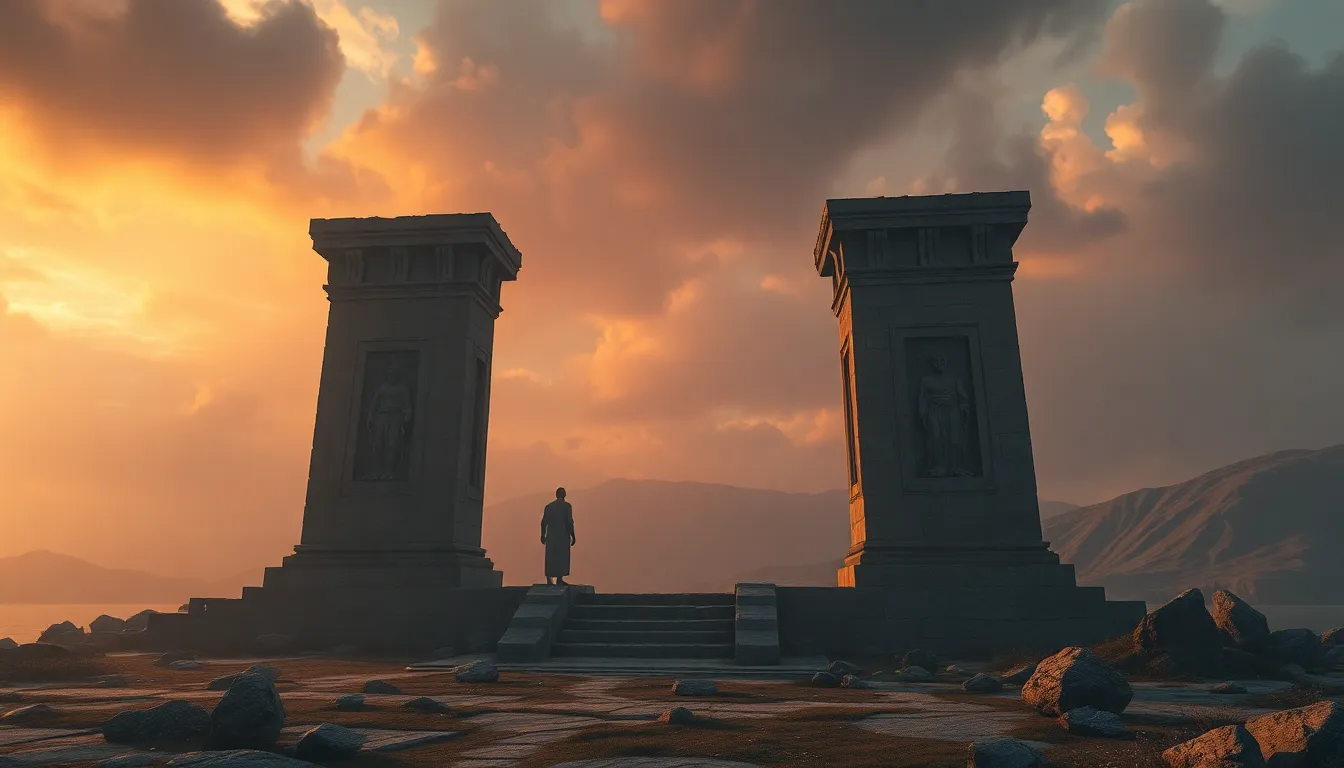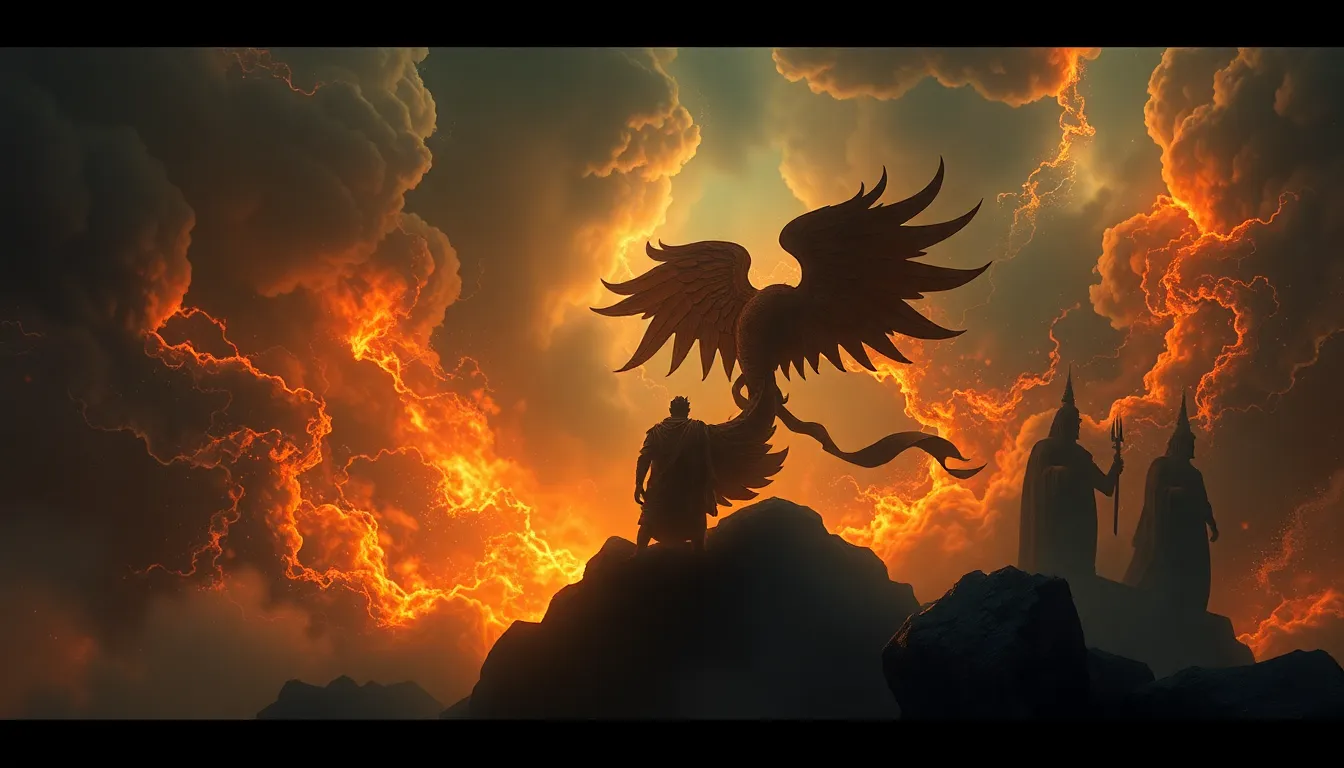Facing the Gods: The Most Grueling Divine Trials in Mythology
I. Introduction
Throughout history, mythology has served as a profound lens through which cultures explore the complexities of existence, morality, and the human condition. Central to many of these mythological narratives are divine trials, which act as pivotal moments of challenge and transformation for heroes. These trials are not merely tests of strength or skill; they are intricate narratives that provide moral lessons, shape characters, and depict the eternal struggle between good and evil.
This article aims to delve into the most formidable divine trials from various mythologies around the world, examining how these challenges have influenced heroes and imparted critical lessons to humanity.
II. The Concept of Divine Trials in Mythology
Divine trials are defined as significant challenges or tests imposed by gods or divine entities upon mortals. These trials often serve multiple purposes:
- To assess the worthiness of the individual
- To impart wisdom and moral lessons
- To exemplify the virtues of courage, perseverance, and humility
Common themes in these trials include the struggle against insurmountable odds, the quest for identity, and the confrontation with one’s own flaws. In many cultures, gods act as both the instigators and observers of these trials, providing a narrative framework through which human experiences are explored and understood.
III. Greek Mythology: The Labors of Heracles
Heracles, the demigod son of Zeus, is perhaps one of the most iconic figures in Greek mythology. His life was marked by extraordinary feats and trials, notably the Twelve Labors, which he undertook as penance for a crime manipulated by the goddess Hera.
The Twelve Labors included:
- Slaying the Nemean Lion
- Slaying the nine-headed Lernaean Hydra
- Capturing the Golden Hind of Artemis
- Capturing the Erymanthian Boar
- Cleansing the Augean Stables
- Slaying the Stymphalian Birds
- Capturing the Cretan Bull
- Stealing the Mares of Diomedes
- Obtaining the Girdle of Hippolyta
- Obtaining the Cattle of Geryon
- Fetching the Apples of the Hesperides
- Capturing Cerberus, the three-headed dog
These labors are emblematic of themes such as redemption and heroism, illustrating Heracles’ transformation from a flawed mortal into a revered hero through resilience and courage.
IV. Norse Mythology: The Trials of Thor
Thor, the Norse god of thunder, is known for his strength and bravery. His encounters with giants, particularly the trials he faced in the contest against the trickster god Loki in Utgard, highlight the significance of his divine trials.
In the Trial of the Utgard-Loki, Thor faced a series of seemingly insurmountable challenges, including:
- Drinking from a horn that was connected to the ocean
- Competing in a wrestling match against the personification of Old Age
- Attempting to lift a cat that was, in reality, the Midgard Serpent
These trials revealed important lessons about strength, humility, and the cunning nature of the gods. Thor learned that true strength goes beyond physical might, reflecting the complex interplay of intellect and power.
V. Hindu Mythology: The Trials of Rama
The epic tale of Rama in the Ramayana is a rich narrative filled with trials that test the protagonist’s virtue and resolve. Rama, an incarnation of the god Vishnu, embarks on a challenging journey during his exile, battling the demon king Ravana to rescue his wife, Sita.
Key trials include:
- His exile from Ayodhya
- The abduction of Sita
- Alliances with monkeys and bears to form an army
- Confronting Ravana in an epic battle
Through these trials, themes of duty, honor, and the eternal struggle between good and evil are vividly portrayed, reinforcing the moral fabric that defines Dharma in Hindu philosophy.
VI. Egyptian Mythology: The Weighing of the Heart
In ancient Egyptian belief, the afterlife was a journey filled with trials, the most significant of which was the Weighing of the Heart. In this trial, the deceased’s heart was weighed against the feather of Ma’at, the goddess of truth and justice.
The process involved:
- Judgment by Osiris, the god of the afterlife
- Assessment of the deceased’s life based on their deeds
- Consequences for the soul based on the outcome of the weighing
This trial had profound moral implications, reflecting the importance of living a just and virtuous life on Earth, as one’s actions would determine their fate in the afterlife.
VII. Mesopotamian Mythology: Gilgamesh’s Quest for Immortality
The Epic of Gilgamesh is one of the oldest works of literature, chronicling the trials faced by the king of Uruk in his quest for immortality. Throughout his journey, Gilgamesh encounters various challenges, including:
- The slaying of Humbaba, the guardian of the Cedar Forest
- The defeat of the Bull of Heaven sent by the goddess Ishtar
- A perilous journey to find Utnapishtim, the immortal flood survivor
These trials offer insights into human mortality, the pursuit of meaning, and the acceptance of one’s fate, illustrating the timeless struggle between the desire for eternal life and the inevitability of death.
VIII. Native American Mythology: The Trials of the Hero Twins
In Mayan mythology, the Hero Twins, Hunahpu and Xbalanque, undertake a remarkable journey filled with trials in the Underworld, Xibalba. Their adventures encompass various challenges that test their wit and resilience.
Key trials include:
- Facing the Lords of Xibalba in a series of games
- Surviving deadly traps and tests of bravery
- Utilizing cunning and intelligence to overcome their adversaries
Their journey symbolizes rebirth, the cyclical nature of life and death, and the balance of cosmic forces, illustrating the interconnectedness of all beings.
IX. Comparative Analysis of Divine Trials Across Cultures
Examining divine trials across various cultures reveals both commonalities and differences in themes and challenges:
- Many trials involve tests of strength, intelligence, and morality.
- Common themes include redemption, the quest for identity, and the battle between good and evil.
- Each culture’s unique context shapes the nature of these trials, reflecting specific values and beliefs.
Ultimately, these divine trials offer profound reflections on the human experience, illustrating resilience, courage, and the timeless quest for understanding in a complex world.



